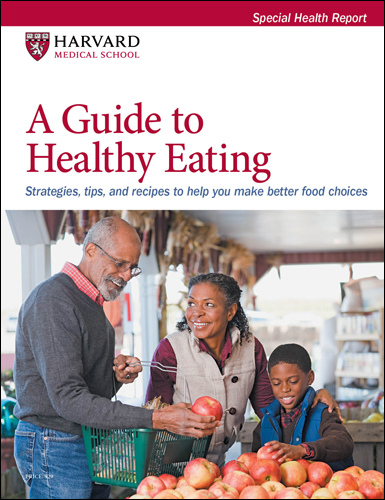Adding potassium and subtracting sodium may equal better heart health
Research we're watching

There continues to be some debate about the importance of reducing dietary salt to lower the risk of cardiovascular disease. But a study published online Nov. 13, 2021, by The New England Journal of Medicine strongly suggests that limiting sodium and increasing potassium intake leads to better heart and blood vessel health.
Researchers from the Harvard T.H. Chan School of Public Health analyzed data from six studies, which together included more than 10,000 healthy adults. Levels of sodium and potassium in periodic urine samples were used to determine the relative amounts of these chemicals in the participants' diets (higher urine levels correlate with greater intake of sodium and potassium). Researchers looked to see who went on to experience a heart attack or stroke or had a procedure to open a clogged artery over a median follow-up period of 8.8 years. During that time, 571 of the participants experienced one of these cardiovascular events.
After controlling for other risk factors, the researchers found that for every extra 1,000 milligrams (mg) of sodium detected in the urine, there was an 18% increase in the risk of cardiovascular disease. For every extra 1,000 mg of potassium in the urine, there was an 18% decrease in risk.
The study shows the importance of taking steps to reduce your sodium intake. As long as you have normal kidney function, it should also nudge you to incorporate more potassium-rich foods into your diet. Good choices include bananas, leafy greens, dairy products, and beans.
Image: © Nataliia Mysak/Getty Images
About the Author

Kelly Bilodeau, Former Executive Editor, Harvard Women's Health Watch
Disclaimer:
As a service to our readers, Harvard Health Publishing provides access to our library of archived content. Please note the date of last review or update on all articles.
No content on this site, regardless of date, should ever be used as a substitute for direct medical advice from your doctor or other qualified clinician.
















